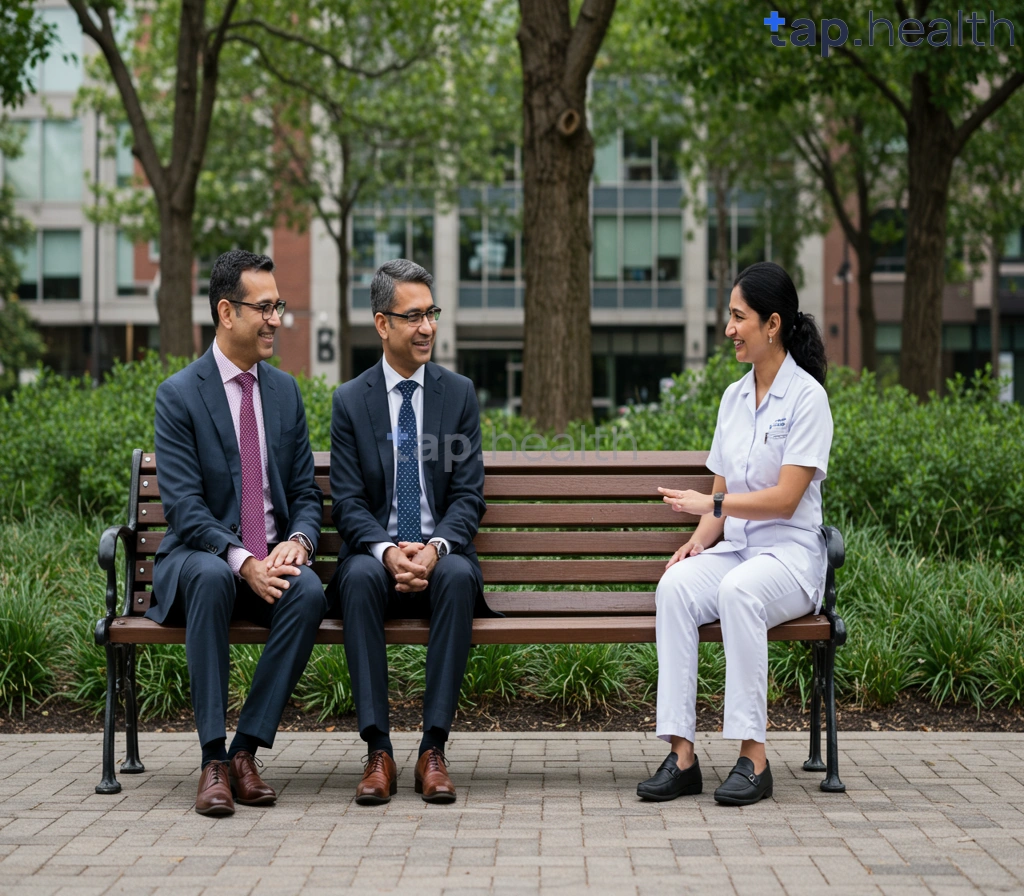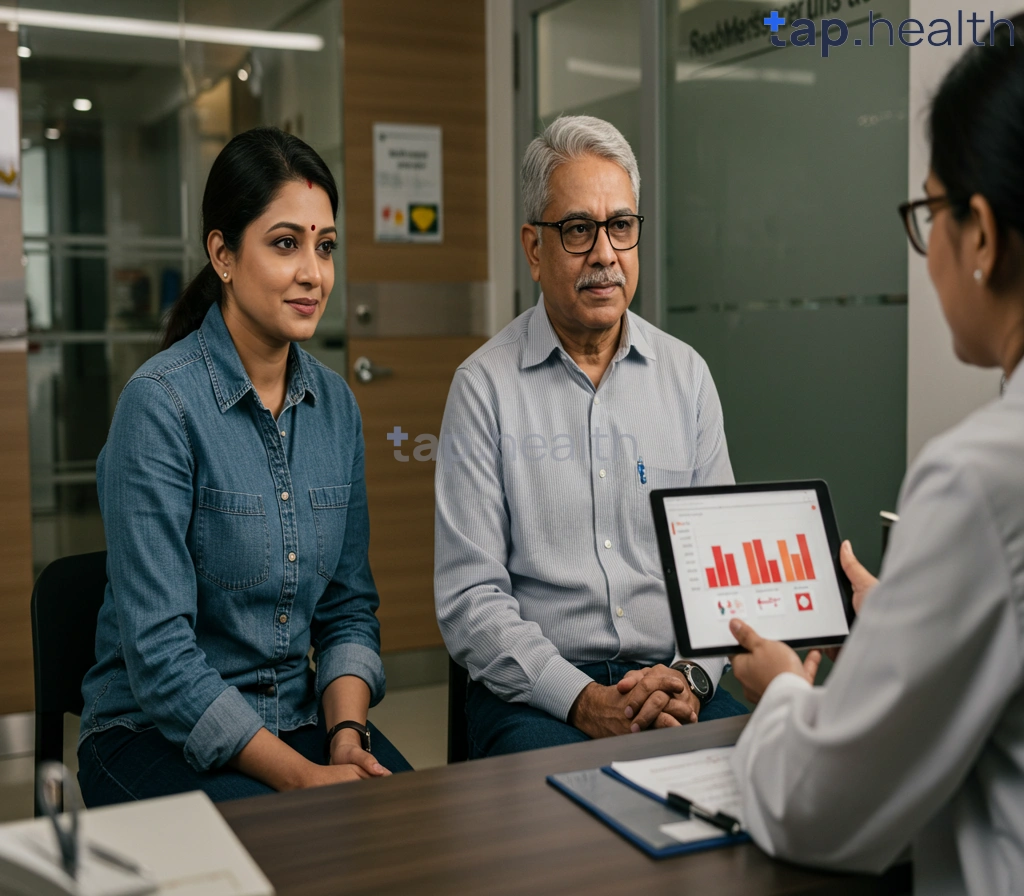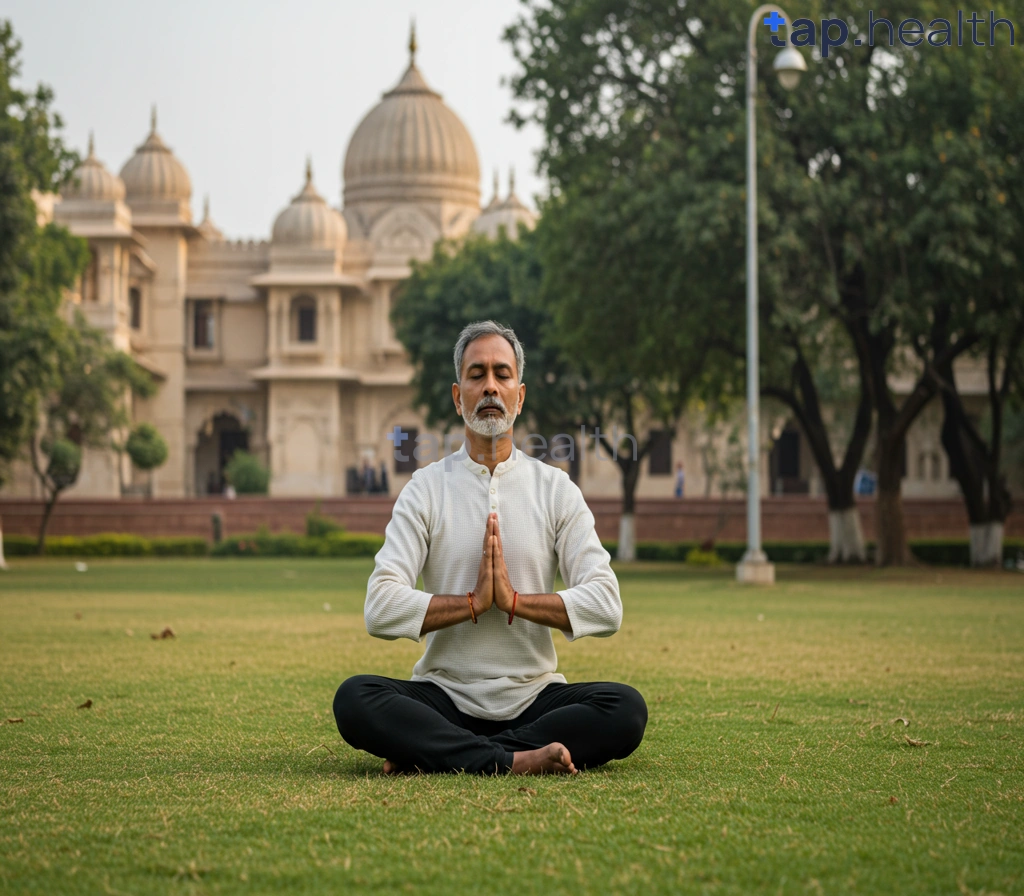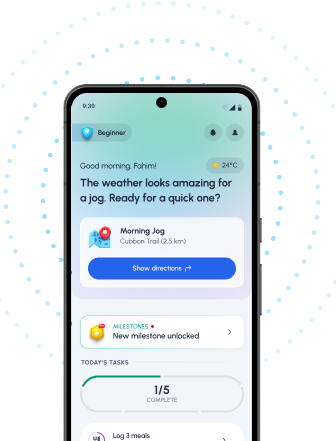Table of Contents
- Rehab Strategies for Effective Diabetes Management
- Physical Medicine: Your Guide to Diabetes Control
- Diabetes Management: Boosting Physical Function and Wellbeing
- Conquer Diabetes: A Physical Medicine & Rehabilitation Plan
- Exercise and Diabetes: A Physical Therapy Approach
- Frequently Asked Questions
- References
Living with diabetes can feel like navigating a complex maze, but what if there was a clearer path? This blog explores Diabetes Management: A Physical Medicine and Rehabilitation Approach, offering a fresh perspective on how you can actively improve your health and well-being. We’ll delve into practical strategies beyond medication, focusing on the power of physical therapy, exercise, and lifestyle modifications to better manage your condition. Get ready to discover how a holistic approach can significantly impact your diabetes journey, empowering you to take control and live a fuller, healthier life. Let’s embark on this journey together!
Rehab Strategies for Effective Diabetes Management
Managing diabetes effectively requires a holistic approach, and physical medicine and rehabilitation (PM&R) plays a crucial role, particularly in India and other tropical countries. A significant portion of the diabetic population, 61% according to the International Diabetes Federation (IDF), falls within the 20-64 age group, highlighting the need for proactive management strategies throughout adulthood. This is further emphasized by the 39% of individuals aged 65+ living with diabetes.
Exercise and Nutritional Guidance
PM&R professionals can tailor exercise programs to individual needs and capabilities, considering factors like age, comorbidities, and climate. In hot and humid climates prevalent across India and other tropical regions, exercising during cooler parts of the day is crucial. Nutritional counseling is equally vital, focusing on culturally appropriate dietary modifications to manage blood sugar levels effectively. This could involve educating patients about the glycemic index of local foods and incorporating traditional healthy eating practices. For more practical tips, see our guide on 10 Proven Tips to Effectively Manage Diabetes | Simple Guide.
Lifestyle Modifications
Beyond exercise and diet, PM&R interventions often include education on stress management techniques, sleep hygiene, and smoking cessation. These factors significantly impact diabetes control and are particularly relevant in high-stress environments. In many tropical countries, access to consistent healthcare can be challenging; therefore, empowering patients with self-management skills is critical for long-term success.
Personalized Rehabilitation Plans
The key to successful diabetes management lies in developing personalized rehabilitation plans. These plans should address individual needs and circumstances, offering practical strategies for daily life. For example, incorporating regular foot checks to prevent complications, which is particularly crucial in areas with limited access to specialized podiatric care. Regular monitoring and adjustments to the plan ensure its continued effectiveness. To learn more about effective strategies, check out our blog on 10 Proven Tips for Effective Diabetes Management.
Seeking Professional Help
Individuals with diabetes in India and tropical countries should actively seek the support of PM&R professionals to develop a comprehensive and culturally appropriate management plan. Early intervention and ongoing rehabilitation are essential for improving quality of life and preventing long-term complications.
Physical Medicine: Your Guide to Diabetes Control
Up to 80% of Type 2 diabetes cases can be prevented or delayed through lifestyle modifications, a fact supported by research. This highlights the crucial role of proactive healthcare and emphasizes the power of physical medicine in diabetes management, particularly relevant in Indian and tropical countries. A physical medicine and rehabilitation approach offers a holistic strategy for diabetes control, going beyond medication to address the root causes of the disease.
Lifestyle Interventions: The Cornerstone of Care
Physical medicine emphasizes lifestyle interventions as the first line of defense against diabetes. This includes regular exercise tailored to individual needs and capabilities. In India and tropical climates, prioritizing outdoor activities during cooler parts of the day is crucial. A balanced diet rich in fresh fruits, vegetables, and whole grains is also essential, with consideration for regional dietary preferences and readily available foods. Managing stress, often overlooked, is another key component, as chronic stress can negatively impact blood sugar levels.
Personalized Exercise Plans
Developing a personalized exercise plan is key. This might include yoga, which is widely practiced in India and other tropical regions, or other forms of moderate-intensity cardiovascular exercise and strength training. Remember to consult with a healthcare professional before starting any new exercise regime. Regular monitoring of blood sugar levels is also vital for effective management and should be integrated into the routine. For more information on the importance of regular exercise, see our blog on Why Regular Exercise is Essential for Diabetes Management.
Empowering Patients in India and Tropical Climates
For individuals in India and other tropical countries, access to affordable and culturally appropriate resources is crucial for successful diabetes management. This includes community-based support groups, educational programs, and culturally sensitive healthcare providers who understand the unique challenges faced in these regions. By incorporating these elements, we can empower individuals to take control of their diabetes and improve their quality of life. Taking proactive steps towards lifestyle changes is the most effective approach. The challenges of diabetes management can increase with age, learn more in our article, Managing Diabetes as You Age: Challenges and Solutions.
Diabetes Management: Boosting Physical Function and Wellbeing
Diabetes significantly impacts productivity, contributing to a 9-12% loss in the workforce in many countries due to complications and absenteeism. In India and other tropical regions, this impact is often exacerbated by factors such as heat, humidity, and limited access to specialized care. Effective diabetes management is therefore crucial not only for individual health but also for economic well-being.
Improving Physical Function through Rehabilitation
A Physical Medicine and Rehabilitation (PM&R) approach plays a vital role in managing diabetes and its associated complications. This includes targeted exercises to improve strength, balance, and cardiovascular health. In tropical climates, adjusting exercise routines to avoid peak heat hours is essential for preventing heat stroke and other complications. Regular physical therapy can help manage neuropathy, a common diabetic complication affecting nerve function, improving mobility and reducing pain.
Prioritizing Wellbeing: Holistic Approach
Beyond physical therapy, a holistic approach is critical. This encompasses nutritional counseling tailored to local dietary habits and preferences, stress management techniques, and education about diabetes self-management. In India and similar regions, incorporating traditional practices and readily available, affordable resources into the management plan can enhance adherence and improve outcomes. Regular monitoring of blood sugar levels, along with consistent medication adherence, remains paramount. A Personalized Diabetes Control plan can significantly improve outcomes.
Taking Action for Better Health
For individuals in India and tropical countries living with diabetes, seeking professional guidance from a PM&R specialist is a crucial step towards improving physical function and overall wellbeing. Early intervention can significantly reduce the risk of long-term complications and improve quality of life, impacting both individual health and economic productivity. Maintaining a strong immune system is also vital, so learn more about Boosting Immunity While Managing Diabetes. Contact a qualified physical therapist or diabetes specialist today to begin your journey towards better health.
Conquer Diabetes: A Physical Medicine & Rehabilitation Plan
Diabetes represents a significant global health challenge, costing the U.S. an estimated $327 billion annually in direct medical costs and lost productivity. This staggering figure highlights the urgent need for effective management strategies, particularly in resource-constrained regions like India and other tropical countries. A Physical Medicine and Rehabilitation (PM&R) approach offers a powerful, holistic solution.
Improving Physical Function and Reducing Complications
PM&R focuses on improving physical function, reducing complications, and enhancing the overall quality of life for individuals with diabetes. This involves a multidisciplinary approach incorporating exercise therapy, nutritional guidance tailored to regional diets, and strategies to manage pain and other co-morbidities common in tropical climates. Regular physical activity is crucial for improving insulin sensitivity, managing weight, and reducing cardiovascular risk—all critical in diabetes management. For specific dietary guidance, you might find our Diet Chart for Diabetic Patients to Control Diabetes helpful.
Region-Specific Considerations
In India and other tropical countries, specific considerations are vital. The prevalence of certain comorbidities like heat stroke and infectious diseases needs to be addressed. Dietary adjustments incorporating readily available local produce and culturally appropriate meals are key. Furthermore, access to specialized care may be limited; therefore, emphasis should be placed on empowering individuals with self-management skills and home-based exercise programs. Affordable and accessible solutions are key to effective diabetes management in these regions. Weight management is a crucial part of this, and our guide on How to Lose Weight with Diabetes Diet Plan can offer valuable insights.
Taking Control of Your Diabetes
Taking proactive steps towards better diabetes management is crucial. Consult with a PM&R specialist to create a personalized plan that addresses your individual needs and considers the specific challenges of your environment. Early intervention and consistent adherence to your treatment plan are essential in preventing long-term complications and living a healthier, more fulfilling life. Find a PM&R specialist in your area today and start your journey to better health.
Exercise and Diabetes: A Physical Therapy Approach
Managing diabetes effectively requires a holistic approach, and physical therapy plays a crucial role, especially in hot and humid climates prevalent across many Indian and tropical countries. The challenge is amplified considering that diabetes affects a significant portion of the population, with approximately 35 per 10,000 U.S. youths diagnosed with diabetes, highlighting the need for early intervention and proactive management strategies. This number likely varies across different regions, emphasizing the importance of tailored approaches.
Tailoring Exercise to the Climate
In hot and humid climates, modifying exercise routines is crucial to prevent heat stroke and other complications. Instead of intense workouts during the peak heat, opt for early morning or late evening sessions. Choose activities that are less strenuous in the heat, such as walking, swimming, or yoga. Staying hydrated is paramount; drink plenty of water before, during, and after your workout. Remember to listen to your body and take breaks when needed.
Specific Exercises for Diabetes Management
Physical therapy can help improve insulin sensitivity, manage weight, and reduce the risk of diabetes-related complications. Strength training builds muscle mass, which helps regulate blood sugar levels. Aerobic exercises, like brisk walking or cycling, improve cardiovascular health. A physical therapist can create a personalized plan incorporating these elements, considering individual fitness levels and the local climate. For example, instead of long runs, shorter, high-intensity interval training (HIIT) sessions can be equally effective and less taxing in the heat. Understanding the link between diabetes and obesity is also crucial for effective management. For more information, read our blog on Understanding the Link Between Diabetes and Obesity.
Finding Support and Resources
Access to qualified physical therapists specializing in diabetes management is key. Many hospitals and clinics in India and tropical countries offer such services. Don’t hesitate to seek professional guidance to develop a safe and effective exercise program tailored to your specific needs and the regional climate. Remember, consistent effort, paired with proper medical supervision, is crucial for successful diabetes management. It’s also important to consider the impact that diabetes can have on mental health. Learn more in our article on The Impact of Diabetes on Mental Health.
Frequently Asked Questions on Diabetes Management: Physical Therapy & Rehab
Q1. What is the main approach to diabetes management discussed in this blog?
The blog advocates for a holistic, personalized approach to diabetes management using Physical Medicine and Rehabilitation (PM&R). This includes tailored exercise, nutritional counseling, stress management, and self-management skills training.
Q2. Why is a personalized approach important for diabetes management, especially in tropical countries like India?
A personalized approach is crucial because it considers individual needs, cultural factors, and the unique challenges of managing diabetes in hot climates. It also accounts for varying access to healthcare.
Q3. What are the key components of a PM&R approach to diabetes management?
Key components include customized exercise programs, culturally appropriate dietary advice, stress reduction techniques, and training in self-management skills to improve long-term outcomes and quality of life.
Q4. How crucial are lifestyle modifications and regular monitoring in this approach?
Lifestyle modifications like stress management and sufficient sleep are vital. Regular blood sugar monitoring and adherence to the personalized treatment plan are also essential for effective diabetes management.
Q5. What are the potential benefits of early intervention and consistent monitoring in managing diabetes?
Early intervention and consistent monitoring significantly improve quality of life and reduce the risk of long-term complications associated with diabetes.
References
- A Practical Guide to Integrated Type 2 Diabetes Care: https://www.hse.ie/eng/services/list/2/primarycare/east-coast-diabetes-service/management-of-type-2-diabetes/diabetes-and-pregnancy/icgp-guide-to-integrated-type-2.pdf
- Diabetes Mellitus: Understanding the Disease, Its Diagnosis, and Management Strategies in Present Scenario: https://www.ajol.info/index.php/ajbr/article/view/283152/266731




